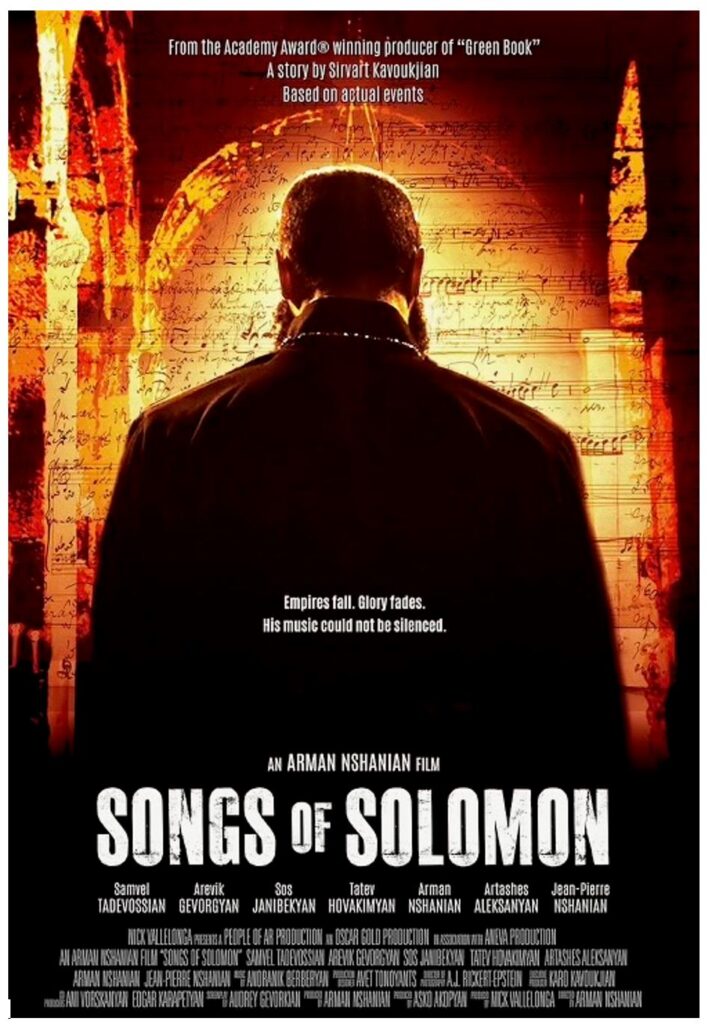By Trent Shockey
Directed by Arman Nshanian, “Songs of Solomon” is a poignant narrative that delves into the depths of historical trauma, particularly amidst the backdrop of the Armenian Genocide of the early 20th century. As the world commemorated the remembrance day of this harrowing event on April 24, Nshanian’s film provides viewers with a profound understanding of the emotional intricacies and relational despair associated with such tumultuous historical occurrences.
The Havighurst Center for Russian and Post-Soviet Studies, in collaboration with the Miami Department of Media, Journalism, and Film, hosted one of the key cinematographers and editors of this movie, Miami alumni, A.J. Rickert-Epstein on April 24th, 2024. Mr. Rickert-Epstein was proud to show his team’s work and dialogue with students about some of the challenges in making the cinematic masterpiece envisioned.
By engaging with audiences on a visceral and emotional level, the film fosters a sense of collective responsibility toward acknowledging and learning from the past. Moreover, it underscores the vital role of cinema in preserving cultural heritage and amplifying marginalized voices. As viewers were transported into the world of “Songs of Solomon,” they were not merely passive spectators but active participants in a journey of remembrance and reflection, contributing to the ongoing dialogue about the human experience and our shared history.
Within the intricate storyline, viewers were drawn into a world where faith, identity, and cultural heritage intersect, highlighting the enduring power of spirituality in times of adversity. The film’s portrayal of the intensely emotional elements of its main characters resonated deeply with the audience, surpassing my own expectations and leaving a lasting impression on all students in attendance.
Through the lens of religious history, “Songs of Solomon” navigated themes of memory, trauma, and the quest for justice, weaving a compelling narrative that oftentimes mirrors archetypal motifs found in traditional religious texts. Each character’s journey served as a profound reflection of the human condition, offering insights into the eternal struggle between good and evil. As the film unfolded, viewers were prompted to contemplate the significance of faith as a source of inner strength and resilience in navigating life’s trials and tribulations.
Dr. Zara Torlone, Professor of Classics and a faculty associate at the Havighurst Center, provided eloquent commentary on the film. A native of Armenia, her appreciation of the film was conveyed through her remarks to Mr. Rickert-Epstein as the event was coming to a close. She affirmed the authenticity of the historical events, as well as the accuracy of the set, dress, and musical culture of the time. Her personal insights, as well as her professional insights as a professor at Miami University, were truly appreciated and added another layer of depth and appreciation for the film’s making. This film not only served as a powerful medium for artistic expression but also as an educational tool, shedding light on historical events often overlooked in mainstream discourse.
Overall, through its portrayal of the Armenian Genocide, “Songs of Solomon” sparks conversations about the importance of remembrance, empathy, and understanding in today’s global society. This film prompts deep introspection and reverence, leaving a lasting impression on viewers and highlighting the enduring significance of historical narratives in shaping our collective understanding of the 20th century and guiding us toward the future. I highly recommend all Miami students to seek out this film if they are looking for a gripping, heart-wrenching, and thought-provoking storyline.
Trent Shockey graduated in May 2024 from Miami with a B.S. in Finance. This review was written in Dr. Scott Kenworthy’s Spring 2024 “Religion After Communism” course.

